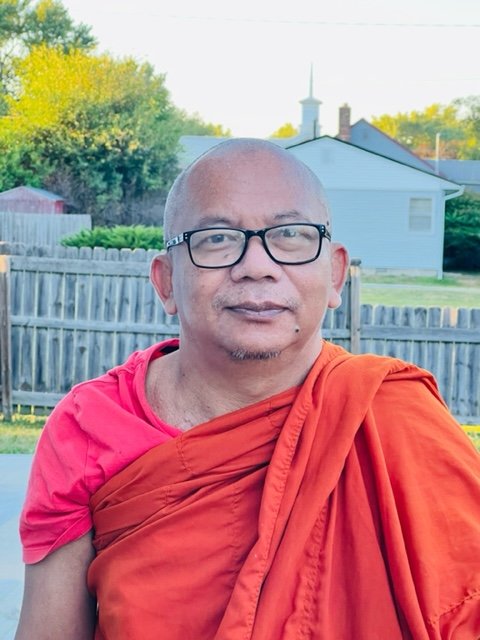U Sak's story: Navigating healthcare in the U.S.
For immigrants unfamiliar with the many intricacies of healthcare in the U.S., trying to access care can feel like being stuck in a maze with no clear path forward.
To get a better idea about what it’s like to be an immigrant trying to navigate the American healthcare system, meet U Sak.
U Sak is a Buddhist monk originally from Burma. After obtaining his visa, U Sak came to the United States as a religious worker for the Buddhist community in Ottumwa, Iowa. Over time, he obtained his green card and became a permanent resident.
But earlier this year, U Sak’s health took a turn for the worst when he contracted COVID-19. Because of life-threatening complications, U Sak had to be life-flighted from one hospital to another one that was better equipped to provide the care that he desperately needed.
During his time in the hospital, members of his local Buddhist community sprung into action. They remained by his side working hard to communicate with the hospital staff and get the care that U Sak required. They soon learned the devastating news that U Sak’s kidneys were failing– he needed dialysis to survive.
“In our religion a Buddhist monk cannot work, so he did not have his own income. [The hospital] would not release him because they could not set up payment.”
U Sak
Beyond being critically ill, U Sak faced many other challenges during his hospital stay, which included unfamiliarity with the American healthcare system that was exacerbated by a language barrier, among other things.
“Even though he had a green card, U Sak didn’t qualify for Medicaid because he hadn’t been [in the United States] long enough. Because of this, there was ongoing confusion [at the hospital] about whether he was undocumented,” said Pla Eh Moo, a community member.
Realizing that they could no longer do this on their own, Pla reached out to EMBARC for help. Not long after, they were connected with Arlene Prather-O’Kane, an EMBARC nurse consultant and caseworker.
“My role is to try and figure out the needs of the patient and help them navigate our medical system. [As an American], it can be challenging enough to do that for my own family. But imagine if you are someone who doesn’t speak the language and is completely unfamiliar with how our healthcare system works,” Arlene said.
Once Arlene became involved with U Sak’s case, she was determined to help him and his community members understand how to advocate for the care that U Sak both needed and deserved.
Pla Eh Moo
“It was very helpful that [Arlene] was from the medical field. She understood what U Sak needed and told us what questions to ask his doctors and the other healthcare professionals that were involved with him,” Pla said. “She gave us so many resources and made sure to check on how U Sak was doing all the time. She tried her best to encourage us because we were going through this very hard time. She’s an angel.”
Because of the dedication and teamwork between Arlene and U Sak’s community, U Sak received a limited type of Medicaid through the hospital and connected with a dialysis center near his home.
U Sak and his community still face the long-term ramifications of his health battle in the medical system: U Sak will continue to need dialysis for several years until he can be put on a waiting list for a kidney.
He will also wait at least two more years to receive full medical and drug benefits through Medicaid – but with support from Arlene and EMBARC, U Sak knows his treatment plan and next steps for the future.
“We have to be there to help each other. I truly believe it takes a village to help someone, and [U Sak’s story] is a very clear case of the good that can happen from that,” Arlene said.
Arlene Prather-O’Kane



